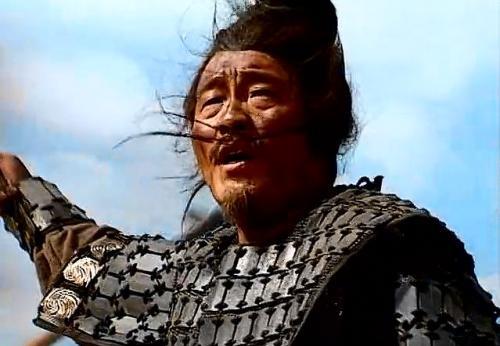Sun Quan had a slave named Gu Li, who sun quan once believed in and loved, and Gu Li also saved Sun Quan's life in the second "Battle of Hefei". Later, during a boat voyage, Gu Li risked his life to disobey Sun Quan's orders, but was respected by Sun Quan. What kind of character is this Gu Li? Let's talk about it.

Gu Li's influence in the Three Kingdoms period at the end of the Han Dynasty was relatively weak, and he could only be regarded as a small person, so his records in the historical data were very limited. According to the records in the "Biography of Jiang Biao", Gu Li was originally a slave of Sun Quan, a man who was respectful and upright, and had a temper with Sun Quan. Sun Quan appointed him as a close prisoner. There is no clear statement as to what it is to be close to the prison, but it is obviously an official position, and it is probably necessary to follow Sun Quan's side. Even after being promoted by Sun Quan, Gu Li was still a very serious and loyal character, and was even more trusted by Sun Quan.
In the 20th year of the Eastern Han Dynasty (i.e., 215 AD), a battle occurred, the Second "Battle of Hefei", in which Sun Quan attacked Hefei while Cao Cao was fighting Zhang Lu. This is a rather classic battle, the specific process will not be detailed, in short, Sun Quan did not take Hefei, and when he was retreating, he was pursued by Zhang Liao, the defender of Hefei.
At that time, Sun Quan's large army was in the south of Xiaoyaojin, and only Sun Quan and Lü Meng, Gan Ning, Ling Tong and others were in the north of Xiaoyaojin, and there were not many troops. Sun Quan had a thousand soldiers, Ling Tong had three hundred, and how many people Lü Meng and Gan Ning had did not know, but not too much. Sun Quan was powerless to resist Zhang Liao, and could only cross Xiaoyaojin as soon as possible and join the large troops in front.
What is very fatal is that the bridge on Xiaoyaojin has been destroyed by the enemy, and there is no bridge deck for more than one inch. Such a wide gap is also very difficult to pass. Gu Li was right behind Sun Quan's war horse, asking Sun Quan to grasp it a little tighter, and Gu Li used a whip to urge the war horse in the back, so as to help Sun Quan through Xiaoyaojin. Ling Tong saw Sun Quan retreat safely, and after leading his own troops, the army was basically completely destroyed, and he himself was injured, because the bridge deck was destroyed, and he swam back to Xiaoyaojinnan. If it were not for Gu Li helping Sun Quan cross the bridge, after Ling Tong and others fought to the death, Sun Quan would most likely be caught by Zhang Liao. The fate of waiting for Sun Quan at that time will be obvious. Therefore, after this battle, Gu Li was awarded the title of Marquis of Duting for the merit of urging the warhorses, which was the smallest of the princes.
Gu Li reappeared in the historical records in the fifth year of Huangwu of Eastern Wu (i.e. 226 AD), when the time had reached the Three Kingdoms period, when Sun Quan, although he had not yet been declared emperor, could basically be regarded as an independent regime with an independent era name, and the capital was in Wuchang, Jiangxia County. In this year, Sun Quan built a large ship, named "Chang'an", and after the production was completed, Sun Quan took this big ship to sea trials, and as a result, he encountered windy weather.
At that time, Gu Li ordered the boatman to go to Fankou to take refuge, and Sun Quan ordered: "We should go to Luozhou." Gu Li pulled out his knife and threatened the boatman: "If you don't go to Fankou, I will kill you." The boatman then turned the rudder and marched toward Fankou. By the time they entered Fankou, the wind and waves had become very fierce and difficult to navigate. At this time, Sun Quan said: "Is Ali so afraid of the waves?" Gu Li apologized to Sun Quan and said, "As the head of a country, the Great King should not risk entering the wind and waves, but should put the society first." So Gu Li dared to risk death to disobey. After Hearing Gu Li's explanation, Sun Quan had great respect for Gu Li and no longer called Gu Li's name directly.
Reference: "Three Kingdoms"